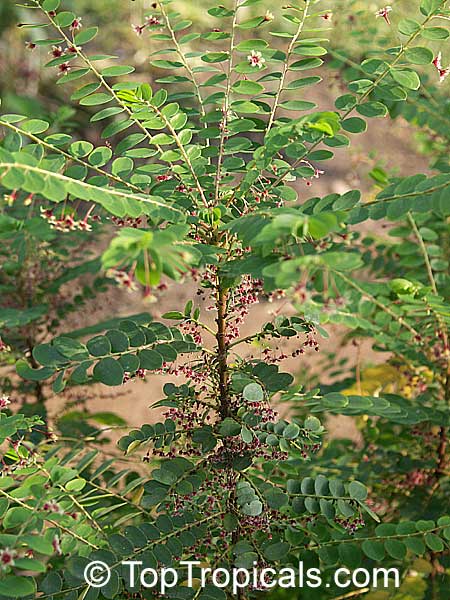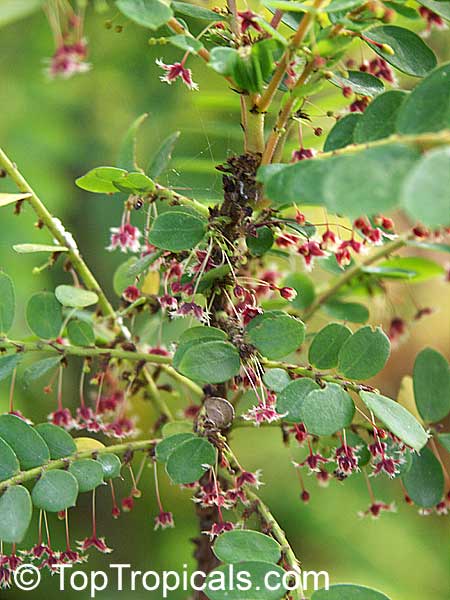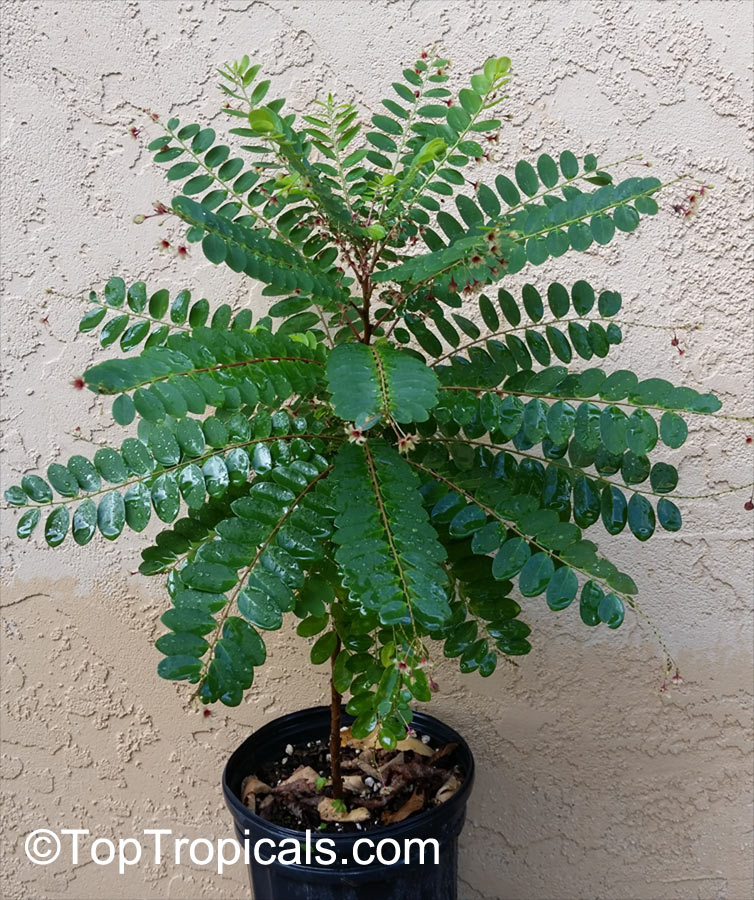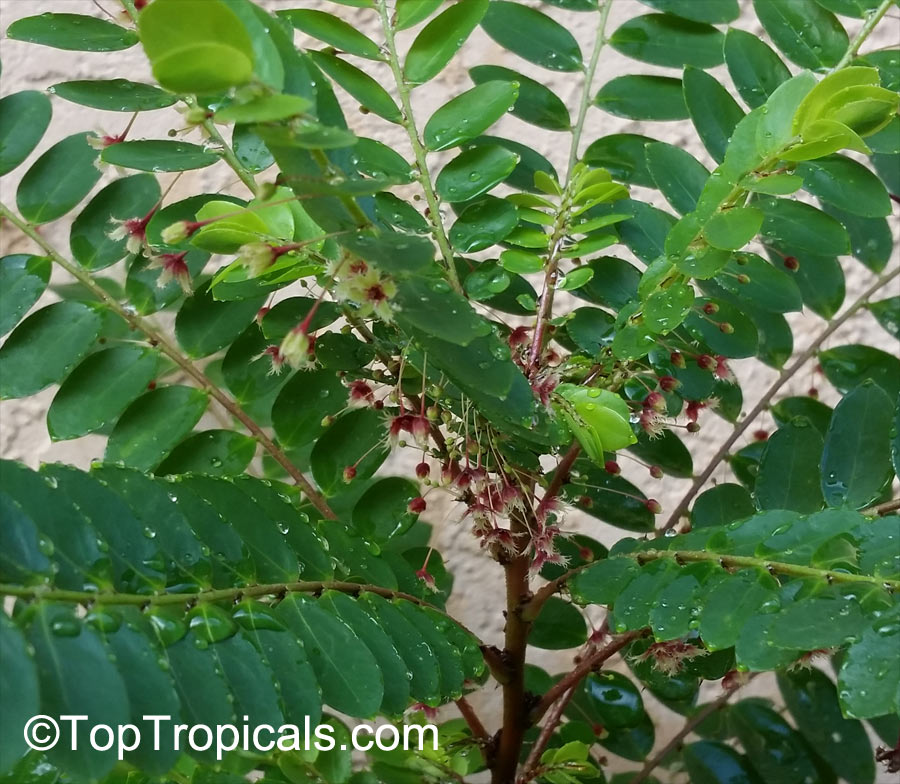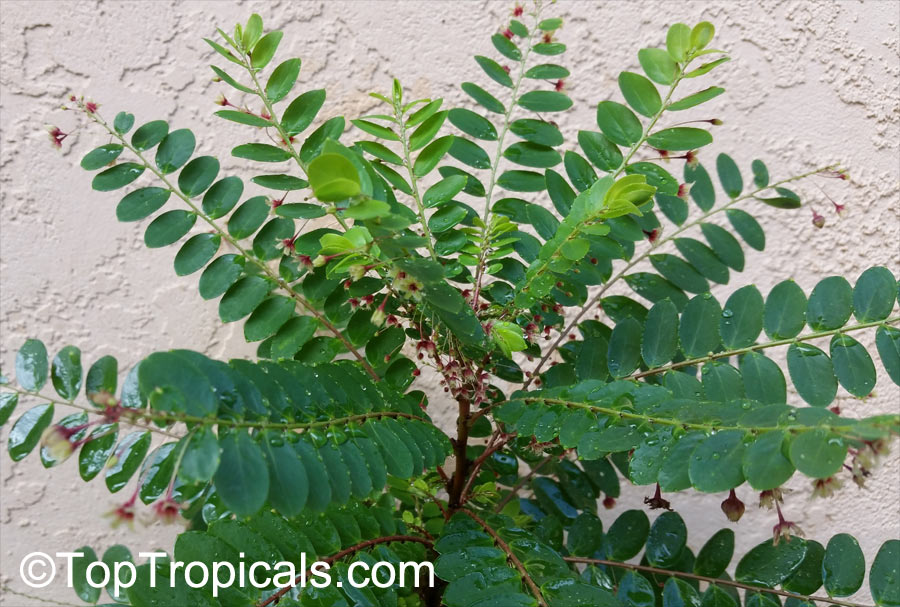Phyllanthus pulcher (Phyllanthus pulcher)
Botanical name: Phyllanthus pulcher
Common name: Phyllanthus pulcher
Family: Phyllanthaceae
Origin: Thailand








Grown in USDA Zone 9-11, Phyllanthus pulcher, this large shrub from Thailand, is best grown in full sun or semi-shade, in a moist but well-drained and humus-rich soil. It requires regular watering and, with its many ethnomedical properties and potential in cancer treatment research, is a plant commonly utilized for its medicinal and food properties.
Phyllanthus pulcher has simple leaves which grow in alternate flat sprays that imitate pinnate leaves. The flower show many colors ranging from white, off-white, and pink, to red and crimson to vinous. The flowers bloom all year round and are borne in the axils of the small leaves, which confirms they are indeed leaves and not leaflets.
In general, Phyllanthus pulcher requires minimal care, but in cold regions, the plant should be kept in a pot to prevent damage from frost. During the winter months, avoid over-watering, as this could be fatal to the shrub. If kept in a pot, make sure to use large enough pot to allow for growth and repotting every two years.
For those located in colder climates, Phyllanthus pulcher can be grown in a greenhouse or home all year round, with consistent maintenance and protection from the elements in winter. In this case, fertilizer should be applied every month and watering should be increased. To ensure healthy growth, ensure that the soil is not left to dry and pay close attention to the flower, which should be given special care to ensure bloom.
Similar plants: Phyllanthus pulcher (Phyllanthus pulcher)
- Emblica officinalis (Indian Gooseberry)
- Epiphyllum hookeri (Climbing Cactus)
- Phyllanthus acidus (Otaheite Gooseberry)
- Phyllanthus angustifolius (Foliage Flower)
- Phyllanthus arbuscula (Phyllanthus )
- Phyllanthus latifolius (Phyllanthus)
- Phyllanthus mirabilis (Dragon Wings)
- Phyllanthus pectinatus (Melaka Tree)
- Phyllanthus sp. (Phyllanthus)
